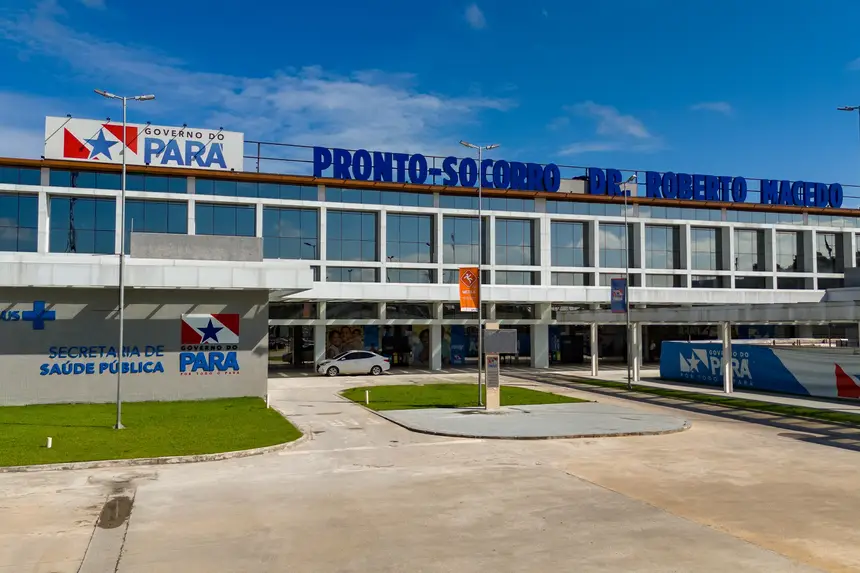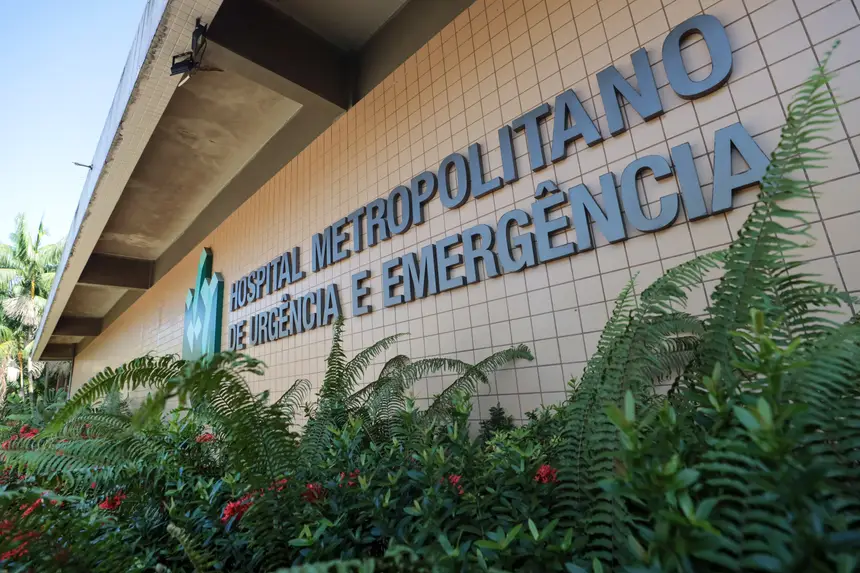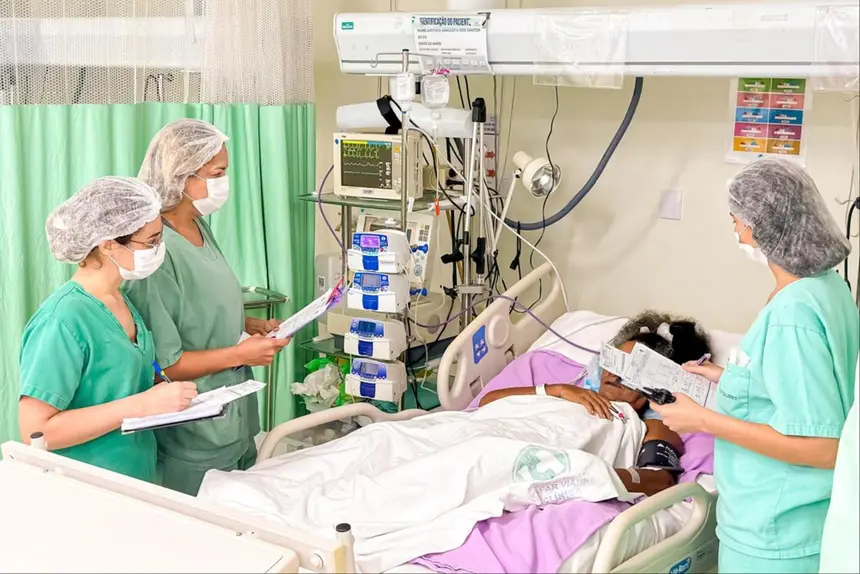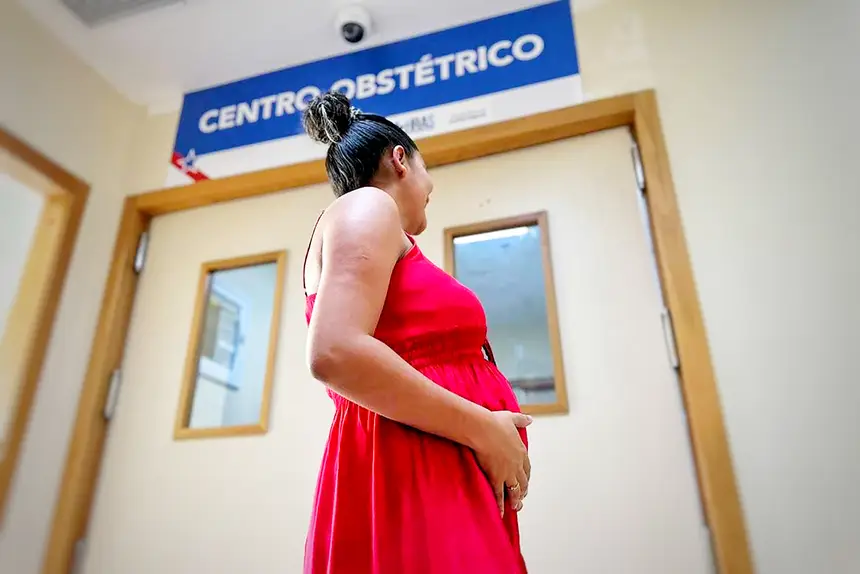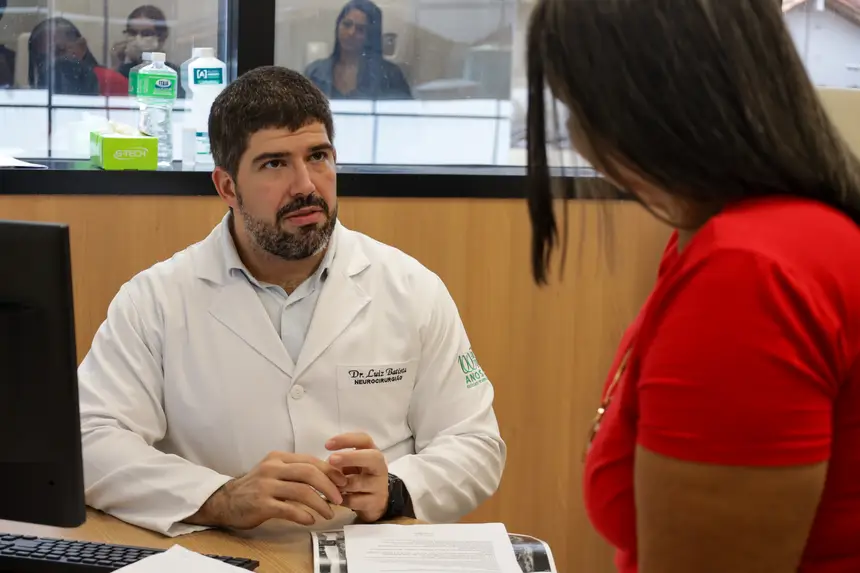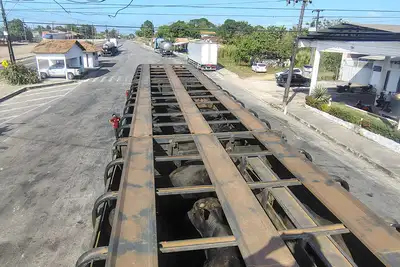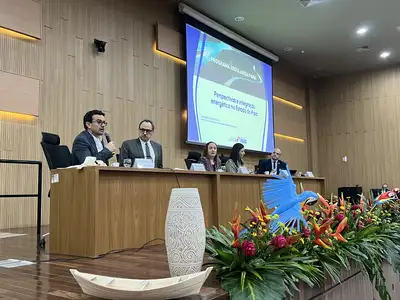State hospitals of Pará integrate strategic health plan for COP30
Public and complementary network ensures agile and safe care for all event participants
To ensure agile and safe hospital care during the 30th United Nations Conference on Climate Change (COP30), the State Department of Public Health (Sespa) developed a strategic action plan in partnership with the Ministry of Health. The planning ranges from the installation of emergency care posts at the conference venue to the definition of state reference hospitals for clinical cases and more complex emergencies.
The Secretary of Health of Pará, Ivete Gadelha, highlighted the state's preparation and the importance of network coordination. “With the integration between state, municipal, and complementary units, we are prepared to respond quickly to different health demands during COP30. This structure demonstrates the care of the Government of Pará in maintaining safety and quality of care, ensuring that the event takes place smoothly for everyone.”
State reference network
Seven state hospitals have been selected to integrate the plan.
* Hospital da Mulher do Pará (HMPA)
* Hospital Jean Bitar (HJB)
* Hospital Metropolitano de Urgência e Emergência (HMUE)
* Hospital Regional Dr. Abelardo Santos (HRAS)
* Fundação Hospital de Clínicas Gaspar Vianna (FHCGV)
* Fundação Santa Casa de Misericórdia do Pará (FSCMPA)
* Pronto Socorro Dr. Roberto Macedo (PSRM)
All units are prepared to handle everything from clinical emergencies to medium and high complexity cases, ensuring access to quality health services for both participants and the local population during the conference.
The general director of the Hospital da Mulher, Nelma Machado, emphasized the unit's commitment. "The unit is prepared to ensure safe assistance to women, with revised action plans, defined emergency protocols, and integration with the state health network. We reaffirm our care profile, especially in cases of gynecological emergencies and assistance to victims of sexual and domestic violence."
Aline Oliveira, director of HRAS, highlighted the importance of the hospital in supporting COP30. “We will do what we already do: provide assistance with safety, quality, and commitment, reinforcing the unit's role in caring for the population and visitors who will come for this historic event in Pará.” The Hospital Regional Dr. Abelardo Santos has ONA1 Accreditation certification, granted by the National Accreditation Organization (ONA), one of the most important quality recognitions in health in Brazil. "Our work is extremely important for the people of Pará and has been recognized by the COP30 organization and the Ministry of Health. We are ready for this moment."
Municipal network complements emergency care
In addition to the state network, the event includes the municipal emergency and urgent care network in the Metropolitan Region of Belém. The deputy secretary of Public Policies of Sespa, Heloísa Guimarães, emphasizes that all teams are trained and organized to ensure efficient and safe care. “At Sespa, we are pleased to integrate, along with the Ministry of Health, the care for all COP participants, with the responsibility that this mission requires,” she assures.
Care protocol during COP30
The care will follow a defined and tested flow in large international events. The Medical Care Posts (PAM) installed at the conference venues will function as triage and first aid points. More complex cases will be transported by ambulance to reference hospitals, according to severity and clinical profile.
The Regulation Center will determine the most appropriate unit for each situation, considering medical specialties, complexity, and proximity. This system ensures a quick response to different demands, ensuring safe and organized care.
Care for heads of state
Official delegations and international leaders will receive care in private reference units, such as the Porto Dias and Adventista de Belém hospitals, prepared for high complexity cases. These units already have complete infrastructure and experience in caring for international patients, ensuring confidentiality, comfort, and excellent care.
With this integrated structure, the Government of Pará aims to ensure comprehensive health attention for all participants and visitors. The state hospital network, together with municipal and private units, ensures broad coverage, quick response to emergencies, and maintenance of quality care, reinforcing safety and health care during the world's largest climate event.


